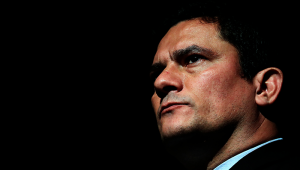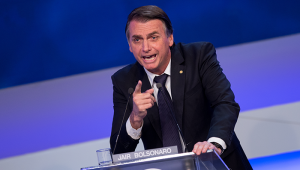The right-wing president issued a decree on his first day in office in January to cut the number of ministries from 29 to 22, which would have expired next week had it not been confirmed in Tuesday’s votes.
The Senate’s vote to keep the Council for Financial Activities Control (COAF) under the control of the economy ministry put an end to a protracted tussle over the department, whose responsibilities include tracking suspicious funds.
Senator Major Olimpio, the leader of Brazil’s Social Liberal Party (PSL) in the Senate, had pushed for COAF to be moved under the control of justice minister Sergio Moro, who led the wide-ranging Operation Car Wash corruption probe in its first four years.
He changed his mind after meeting with Bolsonaro, seemingly persuaded that it was not worth the risk to the government reorganisation proposals, according to Reuters.
Tuesday’s votes were seen as a key test for the right-wing president’s policy agenda. Bolsonaro’s sweeping pension reform, a cornerstone of his controversial campaign, has faltered in recent weeks amid concerns that opposition in Congress would prove too strong.
An IMF statement last Friday described pension reform as a “crucial step”, but said additional measures were needed to stabilise public debt, which at 88% of GDP is one of the highest among emerging economies.
Lawmakers have suggested they may accept a more pared back reform, saving considerably less than the $307bn the government is aiming for. But economy minister Paulo Guedes last week threatened to resign if the reform was watered down.
Supporters of Bolsonaro reportedly held rallies in over 150 Brazilian cities on Sunday, many criticising Brazil’s political system for obstructing his legislative agenda.
Students and teachers took to the streets en masse around two weeks earlier to protest the government’s suspension of 30% of discretionary spending for public universities due to take effect later this year.













